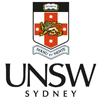Bachelor of Aviation (Remotely Piloted Aircraft Systems)
UNSW
CRICOS provider number: 00098G TEQSA provider ID: PRV12055
Courses included
This course has been cancelled
About
Discover the possibilities of an exhilarating career as a qualified drone pilot. An increasingly valuable qualification across many established and emerging industries, the Bachelor of Aviation (Remotely Piloted Aircraft Systems) is one of the first university courses of its kind. Taught by UNSW’s globally-recognised School of Aviation, you’ll gain the technical expertise and practical skills to operate remotely piloted aircraft systems (RPAS) for a wide range of applications.
This degree not only educates and trains remote pilots to the highest commercial standards, it also develops future industry leaders and managers. You’ll combine the study of theory with 40 hours of crewed flight training and 40 hours of uncrewed flight training. This will include 20 hours of commercial experience with a leading industry partner.
For further information visit the UNSW Degree Finder or contact us on 1300 UNI NSW (1300 864 679).
Flight training costs: You’ll need to pay for the flight training costs portion of this degree. In 2024, the anticipated standard cost of flight training in an aeroplane to achieve your Recreational Pilot Licence, as well as 40 hours of flight training for the Remote Pilot Licence and Commercial Experience component is $48,000. Students will be notified of their flight training costs in October of the year before they undertake the training.
ATAR Profile: Some UNSW offers were issued based on the UNSW Gateway Early Conditional Offer Scheme with a lower ATAR entry requirement. Refer to the Admissions Information for a complete ATAR profile by degree.
Areas of study
Aviation (Remotely Piloted Aircraft Systems).
Career opportunities
Work as a remote pilot across a wide range of industries including aerospace, agriculture, military and defence, creative industries, construction industry, and medical and emergency services. Operational roles include chief drone pilot, drone flight instructor, project manager, crewing, scheduling, performance and safety. drone photographer and filmmaker, drone 3D modeler, surveying and inspection, search and rescue team member.
Professional recognition
Recreational Pilot Licence (RPL) and Remote Pilot Licence (RePL)
Practical experience
Up to 200 hours of flight training and approximately 80 hours of simulator training in block release periods. The minimum standard of a commercial pilot's licence must be obtained for award of the degree; however, progression rates for most students will allow options such as Command Multi Engine Instrument Ratings, Grade 3 Instructor Rating, jet or turbine endorsements or line-oriented flight training.
Fees and charges
Refer to UNSW current fee information.
Essential requirements for admission
Direct application/Interview/Aptitude test: In addition to submitting a UAC application, students must submit a direct application to the School of Aviation and attend an interview.
Medical certificate: Prior to beginning flying training, students need to obtain an Australian Class 1 Civil Aviation Safety Authority medical certificate from a designated aviation medical examiner and be assessed for International Civil Aviation Organization English requirements for pilots.
Admission criteria
Applicants with recent secondary education
Assumed knowledge: Mathematics Advanced.
Recommended studies: Physics.
Other applicants
Refer to UNSW general admission criteria.
Further information
View all details of this course on the UNSW website.
The academic content of all programs is subject to routine review.
ATAR profile
ATAR-based offers only (semester 1, 2023)
Use all ATAR profile data as a guide only; it provides a broad overview of the ATARs and selection ranks of previous Year 12 students admitted into that course. ATARs and selection ranks required for entry in 2024 may be different. If you are unsure about including a course among your preferences, contact the relevant institution.
- This ATAR profile table is in line with Commonwealth Government transparency requirements. It is based on offers to recent school leavers (ie completed Year 12 in the last 2 years) who were selected solely or partly on their ATAR. Note that some institutions further differentiate this information on their websites.
- The ATAR values exclude any adjustment factors.
- The selection ranks include the ATAR and any adjustment factors.
Abbreviations
– = data is not available.<5 = less than 5 ATAR-based offers were made.
N/A = no offers were made on the basis of ATAR.
NC = new course
NP = Not provided by institution
NR = No reportable profile
NS = No Semester 1 offers
NN = Unavailable (other)
NO = Entry on other criteria
Student profile
Course updates
Courses are added and cancelled throughout the admissions year and course details are subject to change. Check the UAC course search regularly.
Double degree options
Double degree options are available in a number of UNSW courses.
Honours at UNSW
Studying honours offers a chance to develop your research and professional skills guided by staff who are passionate about research and the development of new researchers. Honours is an integral component of many UNSW courses or may be offered as an additional year of study to meritorious students.
